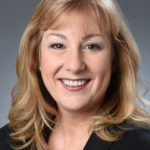
A little fuzzy on innate versus adaptive immunity? Not quite clear on T cells and B cells, neutrophils, and macrophages? Looking for a quick catch up on the latest details of immunological function and pathophysiology? The three-part Immunology Boot Camp has it all.
“You need a basic understanding of immunology and the immune system in order to really understand the diseases we manage,” said Susan Chrostowski, DNP, APRN, ANP-C, ACR/ARHP Annual Meeting Planning Committee member, Professor of Nursing at Texas Women’s University, and Nurse Practitioner at Rheumatology Associates of Texas in Dallas. “That’s what makes the boot camp one of our most popular events every year at Annual Meeting. It’s a very useful review for attendees who may not have been to ACR in a few years and for everyone who has not had time to sit down and learn about the latest findings in our field for a while.”
Immunology Boot Camp is a three-session series presented by Troy R. Torgerson, MD, PhD, Associate Professor of Pediatrics at the University of Washington and Co-Director of the Immunology Diagnostic Laboratory at Seattle Cancer Care Alliance. The first session is Sunday from 11:00 am – 12:00 pm in Room 5 B, the second session on Monday from 7:30 – 8:30 am and the third session on Tuesday from 7:30 – 8:30 am.
The first Sunday session, Basis of Targeted Therapy, lays out a basic framework for understanding how the innate and adaptive immune responses interact to result in rheumatic disease and how those systems can be manipulated to treat disease. Dr. Torgerson will explore the basic building blocks of the immune system; summarize the different components of the innate immune system, including mechanisms by which the system senses both self and foreign; the body’s immediate responses to an antigen; and the roles of both peripheral and central tolerance in adaptive immunity.
“Dr. Torgerson has created some outstanding, easy-to-work-with models that make what can be complex information both easy to understand and fun,” said Dr. Chrostowski, who will moderate one of the three sessions. “This is a great session for anyone in any role who may not have a solid understanding of how the immune system works and how it goes awry to cause disease. This has been one of our most popular sessions in past years — be sure to get there early.”
The Monday session, Basic Mechanisms of Autoimmunity in Room 5 B, is an introduction to the mechanisms at work in the immune system that can trigger the pathophysiology of autoimmunity and cause good cells to go bad. Expect a detailed explanation of the mechanisms of autoimmunity and the resulting inflammatory response that drives a variety of rheumatic conditions. Dr. Torgerson will provide an overview of the protein and cellular components of the acute inflammatory response as an introduction to cytokines that have become useful therapeutic targets in arthritis and other inflammatory diseases.
The Tuesday session, Principles of Immunology to Treatment Decisions in Room 24 A, will provide a series of case studies and clinical scenarios involving different immune problems and complications. Where the first two sessions are largely didactic, the final session leans heavily on audience participation.
“Several of us will be circulating in the audience to help attendees join the discussion,” Dr. Chrostowski said. “The first two sessions will be fairly general, but this last session will get down to some of the specifics of when you see this happening with your patient, what are the kinds of things would you be looking for to be happening with the immune system?
“If you don’t understand this underlying process of rheumatic disease, you’re really going to miss a lot of what goes on in San Diego. You need a good basic knowledge of what is going on with the immune system to get the most out of the other sessions that are more focused on specific diseases.”
